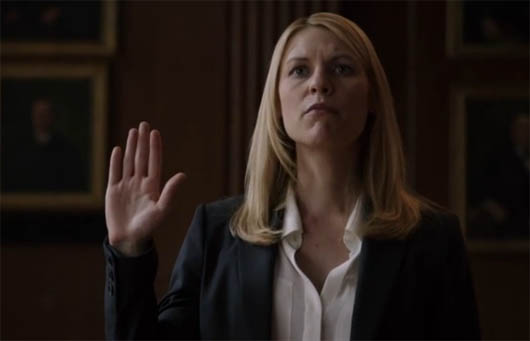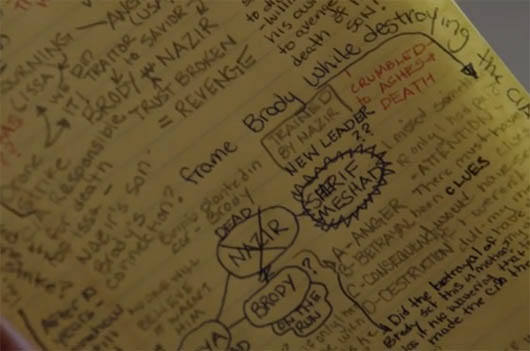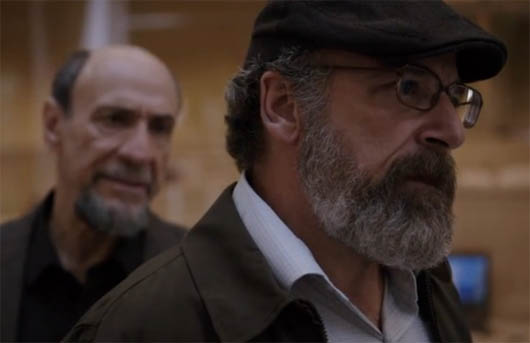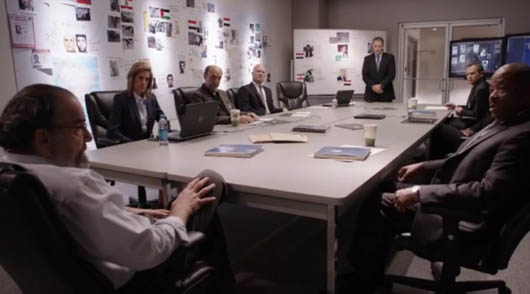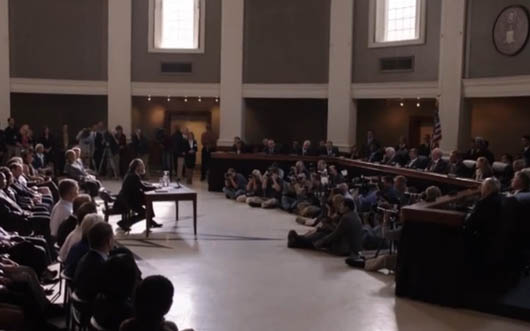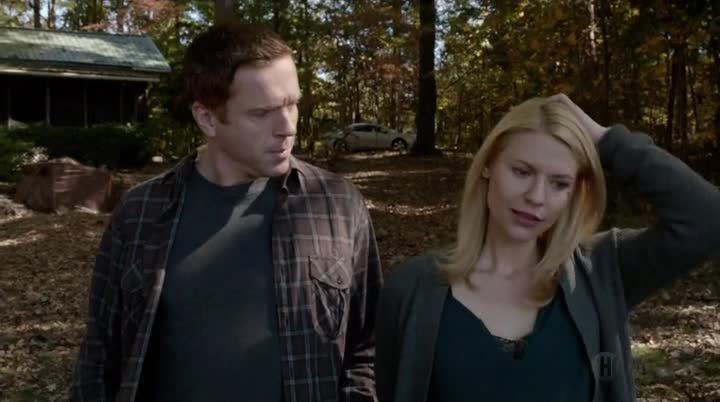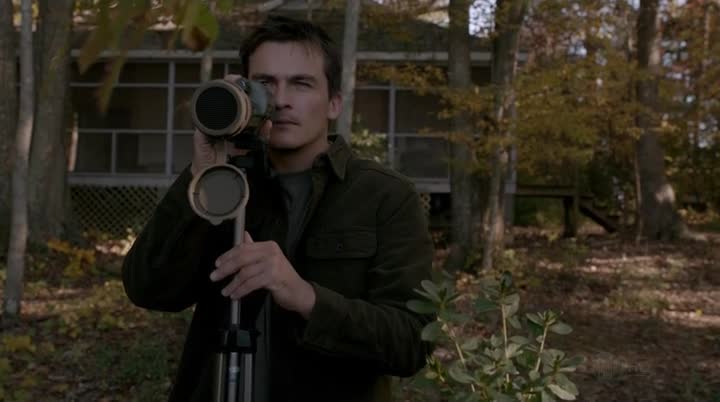 TV
TV In Which There Is No Such Thing As Cocktails
 Monday, July 14, 2014 at 11:36AM
Monday, July 14, 2014 at 11:36AM 
Fictatorship
by DICK CHENEY
Tyrant
creator Gideon Raff
 Tyrant, the new series on FX from Homeland creator Gideon Raff, concerns yet another man with a white wife: Barry Al Fayeed. He could be almost anyone. Barry (Adam Rayner) is also a white man playing an Arab. Some of his relatives in the fictional land of Abbudin are also played by non-Arabs, certainly most of them are non-Muslims. He has returned from a cushy Californian life as an M.D. to his native land for his nephew's wedding.
Tyrant, the new series on FX from Homeland creator Gideon Raff, concerns yet another man with a white wife: Barry Al Fayeed. He could be almost anyone. Barry (Adam Rayner) is also a white man playing an Arab. Some of his relatives in the fictional land of Abbudin are also played by non-Arabs, certainly most of them are non-Muslims. He has returned from a cushy Californian life as an M.D. to his native land for his nephew's wedding.
It seems very daring to make a show about the Muslim world without ever mentioning Islam. It seems very daring to make a film set in any Muslim country when the sets and locations are so obviously Tel Aviv. It is this weird discomfiting feeling that Tyrant feeds off of, like crashing a wedding it turns out you were invited to all along. In fact, you are the guest of honor.
 No one has ever regretted their choice of eyeshadow this much.
No one has ever regretted their choice of eyeshadow this much.
Any scene in Tyrant can be vaguely construed as offensive to someone. In one, Barry's teenage OTP eats some eggs for breakfast while staring at a photo of some children being killed. The metaphorical aspects were breathtaking. Other scenes push the boundaries even further, simulating the immense thrill we would get from watching Tom Cruise in an adaptation of Alex Haley's masterpiece The Autobiography of Malcolm X.
 I'll take Pasadena, but to each his own. Some people even like Braavos.
I'll take Pasadena, but to each his own. Some people even like Braavos.
It is good that we get this jaunty, impersonated thrill from the concept of Tyrant, because we do not get it from any of the show's white characters, Barry's wife and goofy children. Despite being the grandchildren of an impressively autocratic and disgusting dictator and sporting the lovely last name of Al Fayeed, Barry's kids know less than nothing about the Arab world. Having visited the area more a few times and read The Trouble With Islam (well, actually Lynne read it to me while I furiously thrashed myself), here is some of what I have learned about the area:
1) They call a sandwich a cocktail, and there are no cocktails.
2) The only things they love about the United States are Dairy Queen and The Wolf Of Wall Street.
3) Women in the Arab world prefer showercourse, because of the lack of cleanup. It's too hot to extract come from sheets using a magnifying glass and the sun's rays.
 They leave a lot to the imagination in this part of the world. Miley Cyrus is dead there.
They leave a lot to the imagination in this part of the world. Miley Cyrus is dead there.
4) If the country you are in has a q in its name, or a vowel at the end of it, you are most probably in deep shit.
5) Wear a hat, or failing that, a burqa.
6) Do not, I repeat, do not, marry a white woman.
7) Jerry Seinfeld was a god-fearing Muslim until Kramer came into the picture, forcing him to go to synagogue and make that dreadful webseries.
 Wait, Dad was a horrific dictator? I'm totally surprised. OK, let's go jetskiing past that mass grave.
Wait, Dad was a horrific dictator? I'm totally surprised. OK, let's go jetskiing past that mass grave.
Each episode of Tyrant consists of someone being a real blockheaded poopsicle, usually Barry's brother Jamal (Ashraf Barhom), who takes over for his Castro-esque father to lead Abbudin into the 21st century. Barry remonstrates Jamal with typical brotherly insults and jibes, like, "You're such a penis head!" and "You murdered over 50 people, Jamal, gosh!"
 "Make her eyebrows look more Semitic! Claire Danes had no problem doing this."
"Make her eyebrows look more Semitic! Claire Danes had no problem doing this."
It's hard to imagine anyone giving up a thriving pediatric practice in Pasadena for this madness. Barry's mother is still alive, and she is still wearing the dress that she bought in 1971:
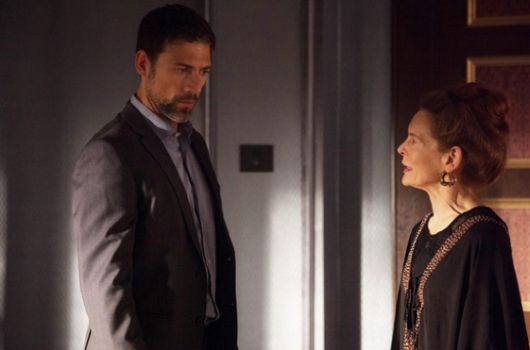 Like a really poorly dressed West Wing
Like a really poorly dressed West Wing
She tells him that he shouldn't be so hard on his father, and then she has no idea why he ran off to America. After he responds, "All the murdering," she nods and grooms her armpit hair with a lovely diamond-encrusted camel-hair brush.
Eventually Barry's wife starts to get a bit antsy. She throws a variety of bon mots his way, e.g. "You'll never find a bottle blonde woman in this country," and "The different colors in your brother's beard make me absolutely nauseous." She did not sign up to be the wife of an Arab scion; she thought she was just marrying a pseudo-ethnic man with a mysterious past that would never be brought up again. How do you think I got Lynne to marry me?
Dick Cheney is the senior contributor to This Recording. He has a lot invested in the nation of Jordan, so don't set any TV series there, Mr. Gideon Raff.
 the more of an asshole you are, the better dots look on your fabrics.
the more of an asshole you are, the better dots look on your fabrics.
"Spirited Away (acoustic)" - Lily & Madeleine (mp3)
"Goodbye to Anyone (acoustic)" - Lily & Madeleine (mp3)

 adam rayner,
adam rayner,  fx,
fx,  gideon raff,
gideon raff,  homeland,
homeland,  tyrant
tyrant 





























